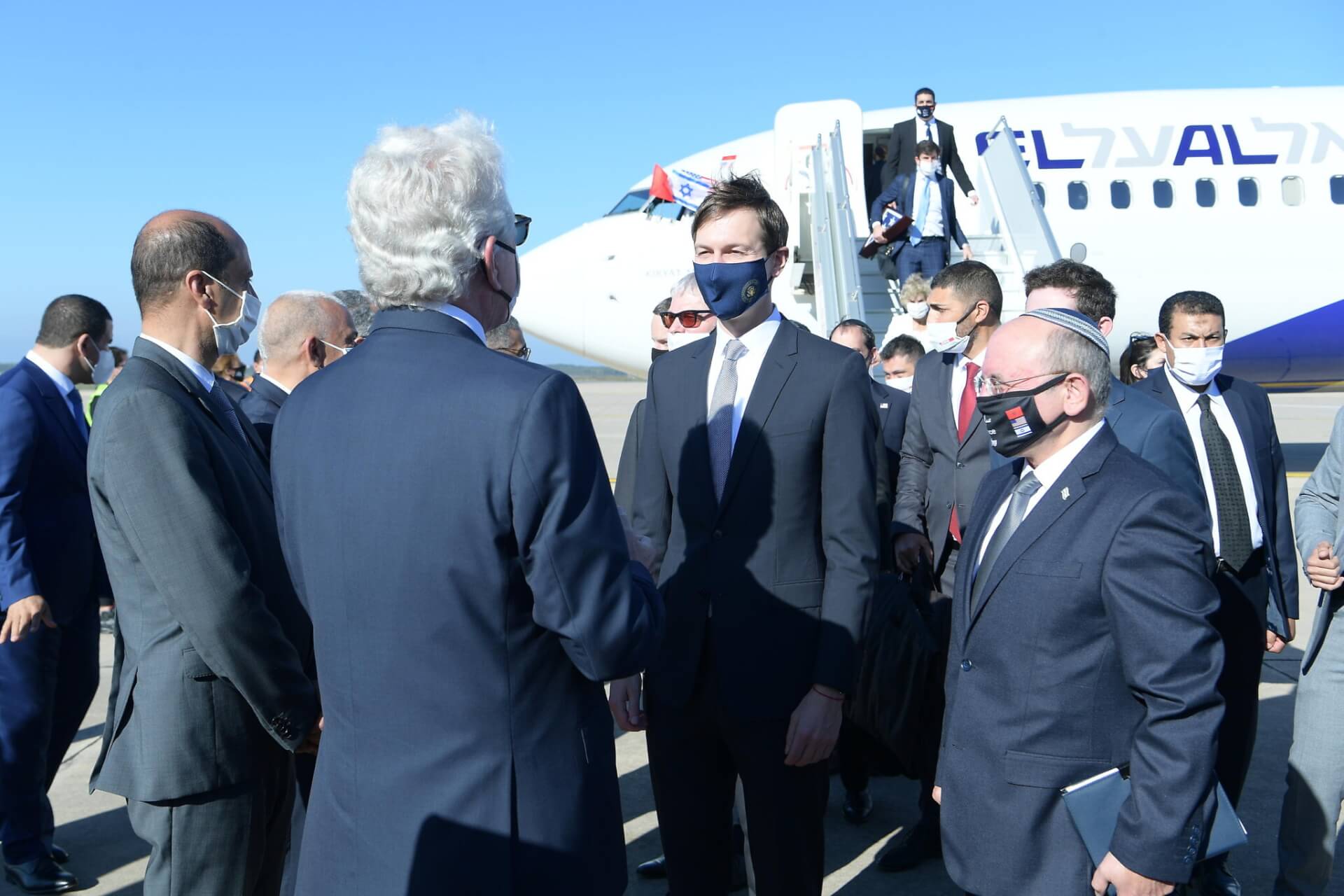White House senior adviser Jared Kushner arrived in Morocco on Tuesday morning with an Israeli delegation led by Israel’s National Security Advisor Meir Ben-Shabbat on what was the first direct flight between Tel Aviv and Rabat since the two countries agreed to establish full diplomatic ties earlier this month.
The officials are expected to meet with the Moroccan King Mohammed VI, and are also scheduled to sign the first documents that are part of the Israel-Morocco normalisation deal, including accords on linking up aviation and financial systems, on visas, and water management.
On Monday, Mr. Kushner, who is President Donald Trump’s son-in-law and the architect of the pan-Arab rapprochement with Israel, met Israeli Prime Minister Benjamin Netanyahu in Jerusalem. He was accompanied by Special Representative for International Negotiations Avi Berkowitz and the chief executive officer of the US International Development Finance Corporation, Adam Boehler. Netanyahu presented Kushner with a plaque at the Prime Minister’s Residence. The US Embassy in Jerusalem named its courtyard after Kushner, and the Keren Kayemeth LeIsrael-Jewish National Fund inaugurated the Kushner Garden for Peace at the Grove of Nations in the Jerusalem Forest.
Speaking about his visit to Morocco during a joint press briefing with Netanyahu, Kushner said that it would “bring about a whole set of new opportunities for Northern Africa and the entire Middle East” and said that the numerous normalisation agreements reflected “common sense” and the US’s new approach to the region. “The results are really what matters and I believe together we’ve achieved some historic results. As this new Middle East moves forward, I hope that all countries will focus on pursuing common interests for the benefits of their citizens, instead of being held back by stale thinking and old conflicts,” he added.
Approximately two weeks ago, Morocco became the sixth Arab League member—following Egypt, Jordan, UAE, Bahrain, and Sudan—to establish full diplomatic relations with Israel, in a deal brokered with the help of the United States (US). Morocco’s royal court confirmed the immediate reopening of embassies in Tel Aviv and Rabat, which were previously shut down in 2000 following the outbreak of the Palestinian uprising, popularly known as the second intifada. The primary reason behind Morocco’s motivation to normalize ties with Israel is a bargain with the US to recognize Rabat’s claim over the disputed Western Sahara region, where tensions between government forces and the separatists Sahrawi forces have escalated. In fact, the self-proclaimed Sahrawi Arab Democratic Republic’s (SADR) army, the Polisario Front, recently broke a 29-year-old ceasefire to declare war on Morocco and has been blocking a crucial border crossing. Following Rabat’s decision to establish formal diplomatic ties with Israel, Washington extended de-facto legitimisation to Moroccan sovereignty over the Western Sahara.
However, critics and international law experts argue that the US recognition of Moroccan control of Western Sahara undermines a deeply-enshrined principle of international law—the prohibition of seizing territory by force.
What words "peace" and "normalization" mean to both #Israel and #Morocco.
— Carlos Latuff (@LatuffCartoons) December 17, 2020
Cartoon @Mondoweiss pic.twitter.com/TBSYofGoEQ
Additionally, since the signing of the deal, several protests have erupted across Morocco, as many Moroccans consider the deal to be a betrayal to the Palestinian cause. In response, Moroccan authorities have banned all anti-normalisation demonstrations. The Moroccan monarch has time again reassured the demonstrators by arguing that the deal “does not affect in any way Morocco’s permanent and sustained commitment to defend the just Palestinian cause and active engagement for the establishment of a just and lasting peace in the Middle East.”
Since Morocco normalised relations with Israel, other non-Arab countries like Bhutan have also recognised Israel as sovereign and formed diplomatic ties with the Jewish state. In addition, the US has offered Indonesia billions of dollars in funding if it establishes formal diplomatic ties with Israel. Indonesian President Joko Widodo, however, has said that normalisation will not happen until there is peace between Palestine and Israel.

